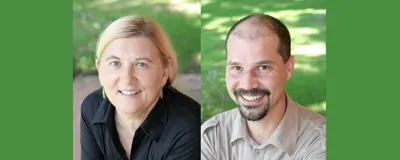Judith Masters, a world-renowned primatologist specializing in lemurs and other tooth-combed primates, and Fabien Génin, her partner in life and science, were found dead on October 3, the apparent victims of a robbery. Police found Masters and Génin tied up in one of the rooms of their Hogsback home that morning, The Witness reports. Neither was visibly injured, and the cause of death has yet to be determined. A manhunt for the suspect is ongoing, according to The South African.
The news of their deaths rocked the primatology community. “I am at a loss for words right now with the cruelty of it all. Judith and Fabien were such lovely souls,” Brandi Wren, a primatologist at Purdue University in Indiana who describes the pair as friends of hers, tells The South African.
Masters, who was in her late 60s at the time of her death, was a professor at the ...


















